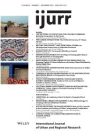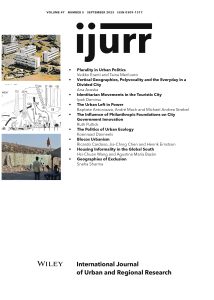In this article we portray and unpack the fabric of urban expansion in contemporary Luanda. In doing so, we examine interdependencies and complementarities between the organization of oil extraction off the coast of Angola, the emergence of particular modalities of modernist city planning for the expansion of its capital city, and the proliferation of cement blocks in the making of new urban forms throughout its burgeoning peripheries. By showing how urban development has unfolded through the interconnected realization of multiple kinds of systematizing blocks—namely oil blocks, city blocks and cement blocks—we analyse key material components in the production of new markets and urban spaces in the Angolan capital. By tracing forms of capitalism and modularity in the making of contemporary Luanda, we develop the concept of blocos urbanism to draw attention to modes of standardization and the production of legibility in contemporary processes of urbanization. Through this study, we aim to contribute to the conceptual apparatus for deciphering our global urban condition.
A documentary film that critically unpacks how oil extraction off the coast of Angola becomes cement, housing, and infrastructure for the people of Luanda. Based on field work in Angola and China. Directed and filmed by JENS ERGON and HENRIK ERNSTSON and script written together with RICARDO CARDOSO, JIA-CHING CHEN, and WANGUI KIMARI, The GROWL Research Team. With support from the AXA Research Fund. Produced and distributed by The Situated Ecologies Platform, 2023, www.situatedecologies.net/films/. Open Access through Creative Commons Licence. The film is based on two peer-reviewed articles, this newly published IJURR-article by Cardoso, Chen and Ernstson (2023) and Kimari and Ernstson (2022).
This has been voted by the IJURR editorial board as a Best Article Prizewinner of 2023:
This article draws on research conducted in Luanda, Angola to reflect on the organization of oil extraction, modalities of modernist city planning, and the proliferation of cement blocks in the making of new urban forms. This insightful article develops the concept of blocos urbanism to reveal how oil extraction off the coast of Angola becomes cement, housing, and infrastructure for the people of Luanda. Offering a fine-grained analysis of the economic, social, and spatial changes underway in the Angolan capital, this article vividly connects the materiality and spatiality of the city to seeming distant machinations in the global economy.

